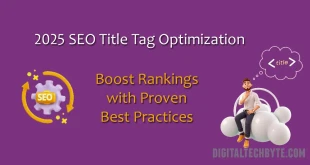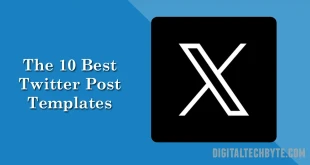Discover the essential digital marketing skills for 2025, including mobile marketing, CRM, design, SEO, PPC, and data analysis. Stay ahead with expert tips to thrive in today’s dynamic digital landscape.
Digital marketing continues to evolve rapidly, reshaping how brands connect, engage, and grow their audiences. Whether you’re an aspiring marketer or a seasoned professional aiming to stay ahead, mastering the right blend of skills is crucial to thriving in today’s competitive landscape. Here, we break down the essential digital marketing skills every marketer should cultivate in 2025 to create impactful campaigns, foster customer relationships, and drive measurable business growth.
1. Mobile Marketing: Personalization Meets Precision
Mobile marketing is no longer optional — it’s indispensable. This form of marketing targets users on devices like smartphones and tablets through channels such as SMS, social media, in-app messages, and mobile web. Success hinges on delivering personalized experiences that resonate.
Harnessing customer data—such as location and purchase history—enables marketers to tailor messages with laser-focused relevance, increasing engagement and brand loyalty. Additionally, data analytics helps identify emerging trends and predict customer behavior, shaping campaigns that captivate attention. Rigorous A/B testing and mobile analytics provide insights on metrics like engagement ratio and average revenue per user, ensuring continual improvement and ROI maximization.
2. Customer Relationship Management (CRM): Cultivating Long-Term Loyalty
Effective CRM systems blend strategy and technology to manage and nurture customer relationships throughout their journey. Platforms like Salesforce, HubSpot, and Zoho CRM empower marketers to track crucial metrics—such as Net Promoter Score (NPS), customer retention rates, and churn—to optimize sales and service interactions.
Understanding the unique functionalities of different CRM tools is vital for tailoring personalized marketing efforts and driving enduring customer satisfaction. Integrating CRM insights helps marketers anticipate customer needs and deliver targeted outreach, fostering lifetime value.
3. Designing: Crafting Visually Impactful Messages
Visual design plays a pivotal role in digital marketing success. Marketers with a good grasp of design principles can effectively communicate a brand’s story through eye-catching creatives that combine compelling imagery and persuasive copy.
Familiarity with design software like Adobe Photoshop and After Effects is advantageous, enabling marketers to contribute to or oversee the creation of high-quality promotional assets. Knowledge of aesthetics—balance, color theory, and user attention patterns—ensures campaigns not only look professional but also capture and hold audience interest.
4. Social Listening: Tuning into the Voice of Customers
Monitoring brand conversations across social media and digital channels unlocks real-time insights into public perception and customer sentiment. Tools like Hootsuite and HubSpot facilitate tracking mentions, managing feedback, and responding swiftly to issues or opportunities.
Social listening enables brands to strengthen customer bonds, identify emerging trends, and turn feedback into strategic advantages. It also equips marketers to manage crises proactively and gather competitive intelligence, enhancing reputation and growth potential.
5. Copywriting: The Art of Persuasion
Words are at the heart of marketing, and skilled copywriting transforms features into benefits that inspire action. Understanding your audience’s preferences and pain points, along with competitor positioning, allows you to craft messages that resonate and drive engagement.
Strong grammar, storytelling abilities, and clarity are essential. Effective copywriting extends beyond ads to email campaigns, web content, and social media posts—each tailored to channels and customer needs for optimized impact.
6. Email Marketing: Personalized Outreach That Converts
Despite the rise of new channels, email marketing remains a powerhouse for customer engagement and retention. Crafting personalized emails that nurture relationships keeps your brand top-of-mind.
Automation tools streamline repetitive tasks, while compliance with data privacy laws like GDPR is critical to maintaining trust. Experimenting with multimedia-rich content such as gifs and videos within emails broadens appeal. Platforms like Mailchimp and Hootsuite offer valuable features including segmentation, autoresponders, and A/B testing for refining effectiveness.
7. Social Media Marketing: Driving Engagement and Growth
Social media offers unmatched opportunities to build brand awareness, drive web traffic, and generate sales. Each platform has unique audiences and content norms, from Instagram’s visual storytelling to LinkedIn’s professional network.
Marketers should leverage analytics tools like Buffer and BuzzSumo to optimize content strategies based on real data. Paid advertising, influencer collaborations, and affiliate marketing further amplify reach and conversions.
8. Pay-Per-Click (PPC) Advertising: Targeted Visibility with Measurable ROI
PPC advertising, especially through Google Ads, offers marketers a direct approach to attract qualified leads. Mastery of platform features and analytics—such as cost per click, click-through rates, and quality score—is essential to design campaigns that maximize return on investment.
Continuous monitoring and adjustment ensure campaigns remain relevant and effective in dynamic markets.
9. Search Engine Optimization (SEO): Enhancing Organic Discovery
SEO improves the visibility of your website by optimizing content and technical elements to rank higher in search engine results. Understanding on-page SEO basics, link-building strategies, site usability, and tools like Google Analytics and Search Console empowers marketers to drive sustainable organic traffic.
Technical SEO expertise, involving sitemaps, server-side settings, and site speed optimization, plays a fundamental role in ensuring websites meet search engine standards.
10. Data Analysis: Translating Numbers into Strategy
Data-driven decision-making powers successful digital marketing. Tools such as Google Analytics provide vital metrics on visitor behavior, demographics, and engagement patterns.
Mastering data visualization techniques transforms complex numbers into clear insights, enabling marketers to identify trends and craft narratives that guide future campaigns effectively.
The Human Edge: Communication, Creativity, and Adaptability
Beyond technical skills, soft skills such as effective communication, creativity, and adaptability distinguish top-tier marketers. Clear messaging across digital channels, innovative campaign ideas, and the agility to pivot in response to evolving trends are indispensable.
Moreover, skills in competitor analysis, marketing automation, problem-solving, and multitasking round out a marketer’s toolkit, enabling them to navigate challenges and seize opportunities in the fast-paced digital ecosystem.
Elevate your career by mastering these essential digital marketing skills. Explore comprehensive digital marketing courses available on YouTube, or consider enrolling in specialized programs like the Digital Marketing Specialist course, which offers in-depth training on the latest tools and techniques to guide you from beginner to expert.
 Digital Tech Byte Latest Technology News
Digital Tech Byte Latest Technology News





